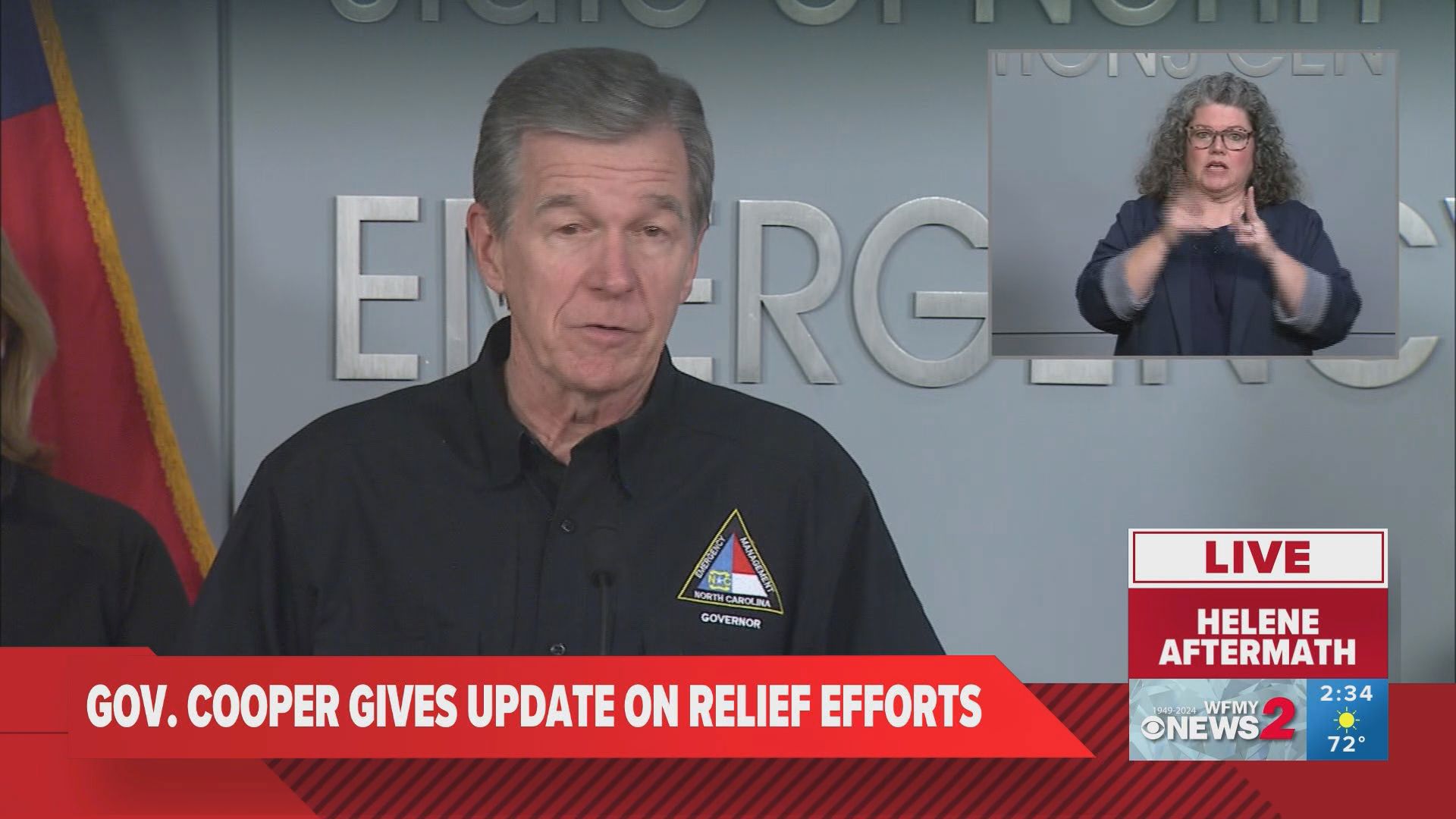RALEIGH, N.C. — North Carolina lawmakers unanimously approved a bill that will allot $273 million toward Helene recovery efforts Wednesday night. Gov. Roy Cooper has now signed it into law.
"Recovery for Western North Carolina will require unprecedented help from state and federal sources and this legislation is a strong first step. Hurricane Helene caused catastrophic damage but also showed the resiliency of North Carolina’s people and its communities and we must continue the bipartisan work to help them build back strong," Cooper said in an emailed statement.
Here's a breakdown of where the money will go:
- $250 million will go to the Department of Public Safety, Division of Emergency Management, to provide the State match for federal disaster assistance programs for State agencies and units of local governments. The Division of Emergency Management will also use some of these funds to create a revolving loan program to help local governments that are waiting on federal reimbursement.
- $16 million will go to the Department of Public Instruction to supplement or replace lost compensation of school nutrition employees due to school closures resulting from Helene.
- $2 million will go to the Office of State Budget and Management to provide technical assistance grants to local municipalities. Grants will be prioritized for counties with a population of less than 250,000.
- $5 million will go to the State Board of Elections. The money will be used to make sure Alexander, Alleghany, Ashe, Avery, Buncombe, Burke, Caldwell, Catawba, Clay, Cleveland, Gaston, Haywood, Henderson, Jackson, Lincoln, Macon, Madison, McDowell, Mitchell, Polk, Rutherford, Transylvania, Watauga, Wilkes, and Yancey counties have access to voting and communications with residents about any changes to polling locations.
Nearly all the money in the bill — $250 million — is earmarked for state agencies to meet the federal government’s match for state and local disaster assistance programs. State government currently has $4.75 billion set aside in a “rainy-day” fund and $733 million in a disaster response reserve. Other pots of money could be tapped if needed.
The bill also includes specifics to ensure teachers and cafeteria workers in public schools closed in Helene’s aftermath get paid. Fees for people to replace lost driver’s licenses and identification cards are getting waived, as are some highway repair and open storm debris burn permitting requirements.
The bill also largely follows rule alterations for conducting elections and turning in ballots that were approved unanimously earlier this week by the State Board of Elections. But lawmakers decided to expand the alterations from 13 of the state’s 100 counties approved by the board to 25 counties — in keeping with the scope of the federal disaster declaration, Senate leader Phil Berger said.
The storm’s flooding has severely damaged some voting sites, making replacements necessary. Early in-person voting is held Oct. 17 through Nov. 2.
The legislation allows voters registered in the 25 counties, for example, to request an absentee ballot in person up until the day before Election Day. These voters also would have more ways to drop off those absentee ballots, including any open early voting site or county election office in any of the 100 counties, as well as at the State Board of Elections office in Raleigh. That goes beyond the additional options approved by the state board. Such ballots still must be turned in by 7:30 p.m. on Election Day to be counted.
The Associated Press contributed to this report.

